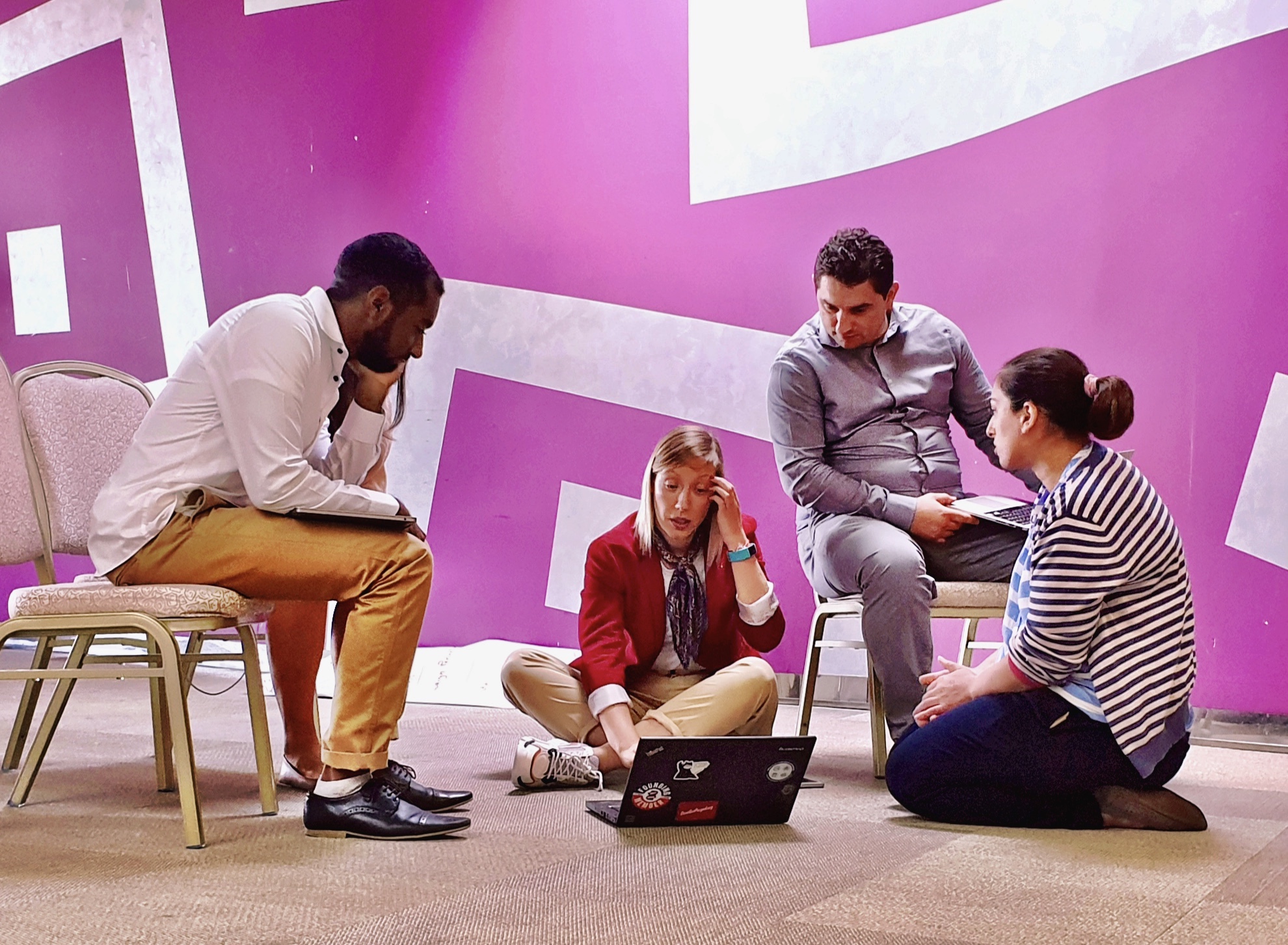GNDEM Members Convene in Belgrade to Discuss Disinformation in Elections

In recent years digital disinformation has become a significant threat to the integrity of electoral processes and election environments. The spreading of false information inhibits voters from receiving impartial information, damages political reputations, discourages participation in elections, and encourages harassment or violence. By better understanding the tools available to them, election observers can more effectively expose and counter the election-related disinformation being spread.
Representatives from several GNDEM member organizations attended an Academy on the impact of social media and elections in Belgrade, Serbia from 2-5 September 2019. This intensive academy, hosted by the National Democratic Institute (NDI), addressed the tools and strategies election observers can utilize for detecting, exposing, and countering malign disinformation in election environments.
The Academy’s participants came from citizen election observation groups around the world including GNDEM members People’s Alliance for Credible Elections (PACE, Myanmar), People’s Action for Free and Fair Elections (PAFFREL, Sri Lanka), Participación Ciudadana (PC, Dominican Republic), Corporación Participación Ciudadana Ecuador (PC, Ecuador), Center for Democratic Transition (CDT, Montenegro), Center for Monitoring and Researching (CEMI, Montenegro), Coalition for Free and Fair Elections- Pod Lupom (Bosnia), Citizen Association MOST (North Macedonia), International Society for Free Elections and Democracy (ISFED, Georgia), and Center for Research Transparency and Accountability (CRTA, Serbia).
Over the course of the four days, participants learned the steps and resources available for structuring and employing a social media monitoring effort. Participants began by assessing the information environments in their countries, thinking through where voters receive their information, popularity of media platforms, what types and themes of disinformation are most prevalent, and any existing efforts to combat disinformation.
Several participants, including representatives from GNDEM members, had the opportunity to present methodologies their organization have used in monitoring disinformation within their countries, demonstrating to peers how monitoring tools can work in specific situations. ISFED, GNDEM member from Georgia, presented a tool -- Fact-a-lyzer, which analyzes data from Twitter and Facebook. During the 2018 Presidential elections ISFED monitored the Facebook accounts of various politicians and political parties for electoral activity violations, attempts to discredit candidates and processes, and divisive content. Fact-a-lyzer enabled the team to sort through thousands of posts and categorize them into groups to gain a clearer image the type of messages spread during the election. Participants also heard about Graphika and the use of big data through case studies presented by citizen observers and elections experts. Following the presentations, the participants had a chance to explore these tools for themselves.
To close out the academy, participants reviewed different methods and techniques to counter disinformation threats. They explored methods for advocating for a more open internet and fact-based political discourse. Additionally, they looked at ways to keep institutions accountable, to build an advocacy network, and to create effective messaging online.
NDI also made available the resources used during the Academy that GNDEM members can use to direct their own strategy for mitigating disinformation.
 GNDEM
GNDEM